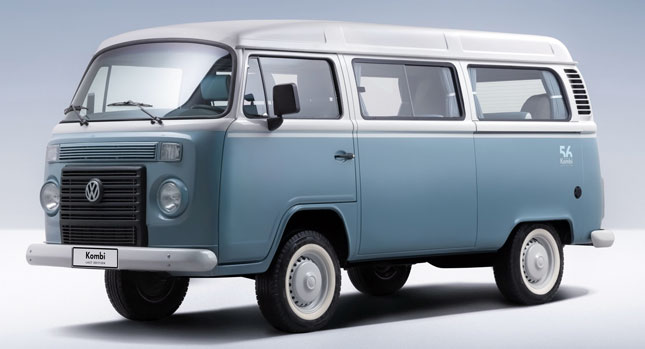One can list many interesting things about Volkswagen’s Type 2 series of commercial and leisure vans and busses, but the most remarkable achievement is the fact that the Beetle-based model managed to remain in production for 63 years if you take into account the original T1 version (1950-1975).
In a sea of lookalike passenger and commercial vans, the two first iterations of the Type 2 Series (T1 and T2) continue to stand out as they did on the first day they came out. Granted, they might not be to everyone’s tastes, but there’s no way you’ll confuse them with anything else on the road and that’s a pretty amazing feat if you think about it.
The T2 generation of the Kombi Type 2 series has been in production at VW’s plant in Brazil since 1957 having gained some modern updates over the years such as the newer water-cooled engine, interior plastics, instrument gauge and radio, but it remains at heart the same van that became synonymous with the hippie culture in mid-1960s. But like anything else in this world, when something comes to life, it’s bound to die. That time has come for the Type 2 after 56 years of continuous production and some 1.5 million units in Brazil, partially due to the new safety legislation in the country.
Acknowledging the historic importance of the series, VW created a Last Edition model of the Kombi of which only 600 numbered examples will be built for the local market, each carrying a not-so-classic price tag of 85,000 BRL or about US$35,600 / €26,700.
Besides the “56 anos – Kombi Last Edition” decals inside and out, the last Hippie-Wagon will come in a retro, two-tone baby-blue and white paint job, with white-colored 14-inch steel wheels wrapped in 185 R14C white-walled tires and a new vinyl interior with privacy curtains in the same shade as the exterior.
The last Kombi is powered by a rear-mounted, 1.4-liter flex-fuel and water-cooled engine that makes 78hp when running on gasoline and 80hp on pure ethanol, coupled to a four-speed manual transmission.
PHOTO GALLERY




















